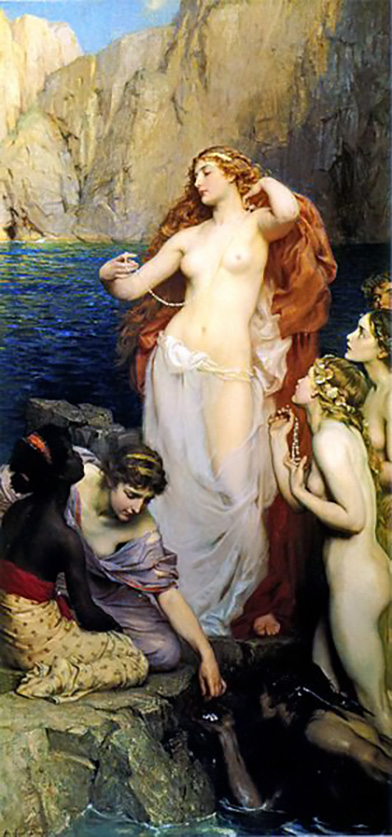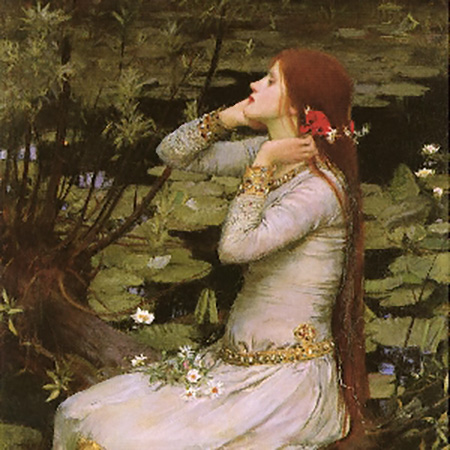Tyro
In Greek mythology, Tyro (Ancient Greek: Τυρώ) was a Thessalian princess. Tyro was the daughter of Salmoneus and she married Cretheus, but loved Enipeus. She gave birth to Pelias and Neleus, the twin sons of Poseidon. With Cretheus she had Aeson, Pheres, and Amythaon. In some accounts, Tyro had a daughter named Phalanna who gave her name to city of Phalanna in Thessaly.
Salmoneus would marry his daughter off to his brother Cretheus, the king of Iolcus, and by him Tyro would become mother to three sons, Aeson, Amythaon and Pheres.
Tyro though was in love with the Potamoi Enipeus, and would sit by the banks of the river trying to seduce the river-god. One day, Poseidon spied the beautiful Tyro, and wishing to have his way with her, disguised himself as Enipeus; from this union, Tyro would give birth to two more sons, Pelias and Neleus. These two sons were left abandoned on a hillside, but were found by a herdsman, and grew into adulthood with him.
An additional tale also has Tyro giving birth to two unnamed sons by Sisyphus, the uncle of Tyro. Sisyphus hated his brother Salmoneus, and an oracle had proclaimed that sons born to Tyro by Sisyphus would kill their grandfather. Tyro though learned of the prophecy and killed the sons as newborns so that they would not be able to kill Salmoneus.
The most important son of Tyro was probably Pelias, for when of age, he and his brother Neleus located their mother, and killed Tyro’s stepmother Sidero, for having been cruel to her. Sidero was killed in the temple of Hera by Pelias, an act would lead the goddess to plot against Pelias.
Pelias would then seize the throne of Iolcus, Cretheus having died, and banished Neleus to Messenia, whilst Pelias’ stepbrothers, Amythaon and Pheres also fled. Aeson as the rightful heir to Iolcus though was imprisoned by Pelias.
The family line of Tyro is important for she was grandmother to the likes of Jason (by Aeson), Admetus (by Pheres), Melampus (by Amythaon), Acastus and Alcestis (by Pelias), and Nestor (by Neleus). Thus a number of the heroes who took part in the quest for the Golden Fleece, and the Calydonian Hunt, were her grandsons, and many heroes during the Trojan War, including Antilochus and Thrasymedes, were her great-grandsons.

Sources
Homer, "Book XI: The visit to the dead. 235–260", The Odyssey. Translated by Samuel Butler (10th ed.).
Tzetzes on Lycophron, 175
Diodorus Siculus, Bibliotheca historica 4.68.2–3
Stephanus of Byzantium, Ethnica s.v. Φάλαννα
Homer, Odyssey 11. 236–7, but Hesiod, Ehoiai fr. 30 (Merkelbach-West) says she fought with Salmoneus and was rescued by Zeus and led to the house of Cretheus, where she was raised. Pseudo-Apollodorus, Bibliotheca 1.9.8 confirms this.
Hamilton, Edith (1969) [1940]. "Brief Myths Arranged Alphabetically". Mythology: Timeless Tales of Gods and Heroes (Renewal ed.). New York: Mentor Books. p. 313.
Pseudo-Apollodorus, Bibliotheca 1.9.8 adds that Pelias refused thereafter to honor Hera
Hyginus, Fabulae 60 & 239
Pound, Ezra. The Cantos. New York: New Directions, 1998.













